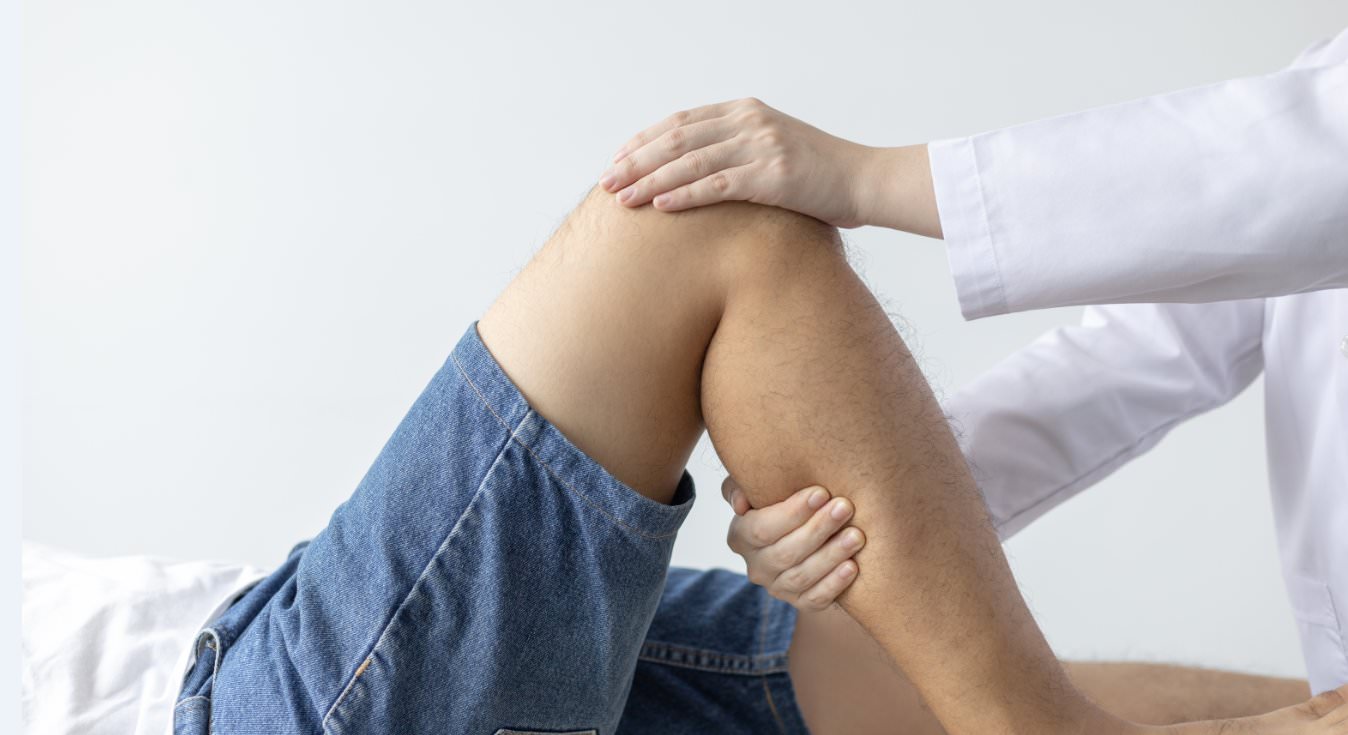Joint pain is a prevalent issue that affects people worldwide, typically stemming from osteoarthritis, rheumatoid arthritis, bursitis, gout, strains, and sprains. It is particularly concerning for aging individuals, who are most susceptible to these conditions. This type of pain has a profound impact not only on physical abilities but also on mental and emotional well-being. Therefore, effectively managing joint pain and its underlying conditions is crucial.
Non-surgical procedures offer options for alleviating this pain and enhancing joint function, often with reduced risks and costs compared to surgery. Methods such as physical therapy, medication, injections, and lifestyle adjustments are essential to explore, especially for individuals unsuitable for surgery or those who prefer less invasive approaches.
At Orthopedic Specialists of SW Florida, we specialize in these non-surgical treatments, providing individualized care plans that focus on patients’ health and functional objectives.
How Joint Pain Limits a Person’s Quality of Life
Pain in areas like the knees, hips, shoulders, elbows, and other joints can stem from inflammation or injuries, leading to tenderness, swelling, stiffness, and limited movement. This discomfort hinders daily tasks like grasping objects, standing up, or walking, affecting people’s ability to do things for themselves. Chronic pain may disturb sleep and trigger feelings of depression or anxiety, impacting overall well-being.
Causes of Joint Pain
There are many different causes of joint pain, each with its own mechanisms of inducing discomfort and restricting joint function:
- Osteoarthritis (OA): The most common form of arthritis, OA, occurs when the protective cartilage that cushions the ends of bones wears down over time. Age, obesity, genetics, and previous joint injuries are significant risk factors.
- Rheumatoid Arthritis (RA): RA is an autoimmune disorder that causes the immune system to mistakenly attack the joints, leading to inflammation and pain. It can cause joint damage and deformity in the arthritic joints if left untreated.
- Bursitis: Caused by repeated pressure or friction, bursitis is the inflammation of the bursae, small fluid-filled sacs that cushion the bones, tendons, and muscles near joints.
- Gout: A form of inflammatory arthritis characterized by sudden, severe attacks of pain, swelling, redness, and tenderness, often in the big toe, resulting from excess uric acid forming crystals in the joints.
- Tendinitis: Tendinitis is the inflammation or irritation of a tendon caused by repetitive motion or overuse, leading to acute joint pain and tenderness.
- Injuries: Sprains (overstretched or torn ligaments) and strains (overstretched or torn muscles or tendons) can cause immediate joint pain and are common in individuals engaging in physical activities.
- Infectious Diseases: Certain infectious diseases like Lyme, transmitted by ticks, can cause joint inflammation and pain.
- Overuse: Continuous use or repetitive joint motion can lead to pain and inflammation, often seen in individuals with jobs or hobbies requiring repetitive movements.
Understanding the root cause of joint pain is vital for successful treatment and management. At Orthopedic Specialists of SW Florida, we thoroughly examine each patient’s history and symptoms to create a personalized non-surgical treatment plan that caters to their needs.
Non-Surgical Treatments for Joint Pain
Discussing nonsurgical treatment options can relieve and restore mobility for individuals experiencing joint pain, offering alternatives to joint replacement surgery.
Diet & Nutrition
The foods we eat are crucial for joint health. A diet rich in anti-inflammatory foods can reduce joint pain and boost joint function.
- Omega-3 fatty acids from fish, flaxseed, and walnuts can help reduce inflammation.
- Antioxidant-rich fruits and vegetables combat oxidative stress that harms joints. Including dietary supplements can also support joint health.
- Avoiding processed foods, sugars, and saturated fats is key, as they can worsen inflammation and lead to weight gain, adding stress to the joints.
Regular Exercise
Regular exercise is crucial for effective joint pain management. Exercise helps to strengthen the muscles surrounding the joints, offering improved support and less stress on the joints themselves.
Opting for low-impact activities such as swimming, cycling, or walking can enhance endurance and flexibility without imposing additional strain on the joints.
Physical Therapy
Physical therapy is particularly useful in treating knee joint pain without surgery. It focuses on relieving discomfort and restoring function using exercises and manual therapy techniques.
Physical therapists help the body heal naturally and strengthen supporting muscles around the knee joints. Their personalized approach not only tackles pain but also prevents its return. Through targeted stretching and strengthening exercises, flexibility improves, and muscles provide better support to the knee joint, reducing its load.
The most common physical therapy modalities include:
- Therapeutic Exercises: Tailored exercises help increase the range of motion, strengthen muscles, and improve endurance, crucial for joint stability and pain reduction.
- Manual Therapy: Skilled hand movements performed by therapists can mobilize soft tissues and joints to decrease pain and increase movement.
- Heat & Cold Therapies: Applying heat can enhance circulation and ease muscle stiffness, while cold therapy may reduce inflammation and numb areas of acute pain.
- Ultrasound: This modality uses sound waves to deliver deep heat to soft tissues and joints, potentially reducing pain and promoting healing.
- Electrical Stimulation: Techniques such as TENS utilize electrical currents to reduce pain. This can also help to activate muscle groups without stressing the joints.
Each modality has unique benefits, and they may be combined to create an effective, comprehensive treatment plan for those dealing with joint pain. At Orthopedic Specialists of SW Florida, we assess the suitability of these therapies based on what each patient needs to ensure the most favorable outcomes.
Over-The-Counter Pain Relievers
Using over-the-counter (OTC) pain relievers is a common approach for relieving joint pain without immediate medical intervention. Nonsteroidal anti-inflammatory drugs (NSAIDs), including ibuprofen and naproxen, are widely used to alleviate inflammation and reduce pain. Acetaminophen is also a popular choice for pain relief, although it does not possess anti-inflammatory properties.
It is vital to adhere to the recommended dosages and to be mindful of the drug’s potential side effects, especially with prolonged use. Talking to a doctor at OSSWF is advised for those with underlying health conditions or those taking other medications that might interact adversely with OTC pain relievers.
Prescription Medications
In cases where OTC medications aren’t enough to manage joint pain, prescription medicines may offer more relief. These medications are typically stronger and formulated to target more severe or persistent pain symptoms. They can include corticosteroids to rapidly diminish inflammation, disease-modifying antirheumatic drugs (DMARDs) for autoimmune conditions like rheumatoid arthritis, and other specialized medications designed to target the specific causes of joint pain.
Prescription options often accompany a tailored treatment plan, close monitoring for efficacy and side effects, and potential adjustments over time to optimize patient outcomes.
Choose Non-Surgical Treatments for Effective Joint Pain Relief!
At Orthopedic Specialists of SW Florida, we know that every person who experiences joint pain is unique, with their own medical histories, goals, and preferences. Consult our healthcare experts if you’re experiencing discomfort, limited mobility, or joint issues, and let us help create an effective pain relief plan, tailored to you.
Start your path to a more comfortable, active life by contacting Orthopedic Specialists of SW Florida today!


